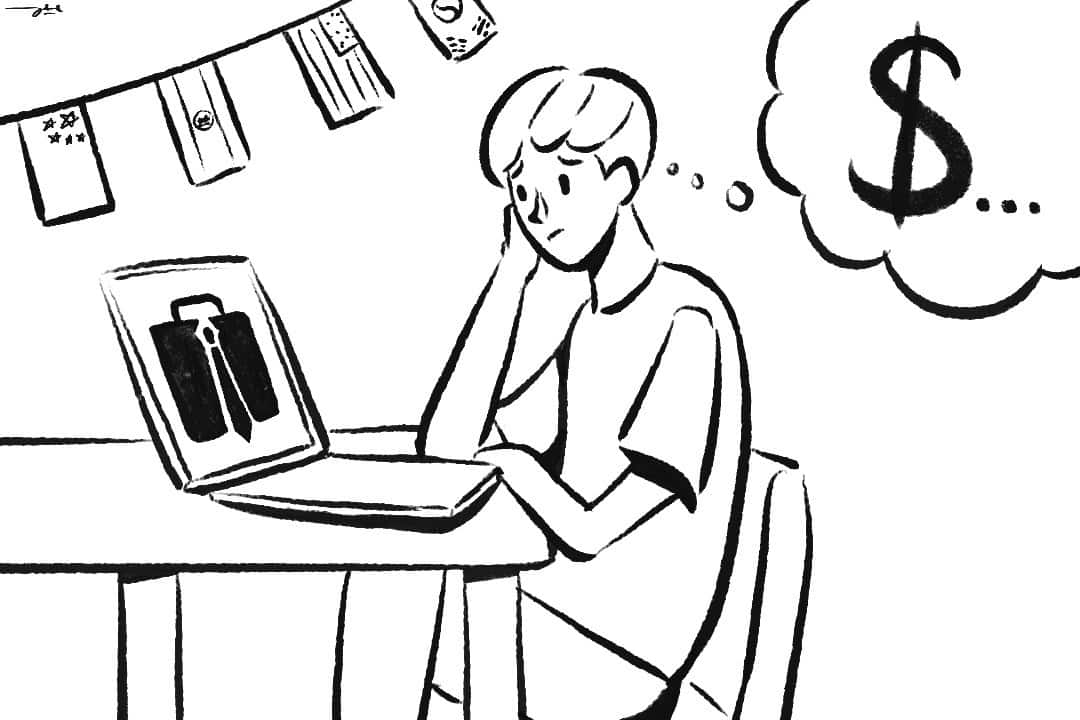A pilot program the federal government implemented over the last year, lifting its 20-hour per week cap on the number of hours international students can work off-campus, is set to end after December 31.
Student advocates have raised concerns about the federal government reinstating the cap, noting that it could mean students have less access to legal work opportunities and could impede their ability to earn enough to afford U of T’s high international tuition rates. Some also raised concerns that the reintroduced cap will lead students to seek jobs illegally, opening them to exploitation.
Work limits for international students
The Immigration and Refugee Protection Regulation states that international students who hold a study permit but no work permit cannot work more than 20 hours per week off-campus during the academic session; however, they can work full-time during breaks between sessions. Students can work as many hours as they’d like on campus in addition to working off-campus.
According to the Government of Canada’s website, students found to have violated the work cap could lose their student status, not receive approval for future study or work permits, or face deportation.
In a press release on October 7, 2022, Federal Minister of Housing, Infrastructure and Communities Sean Fraser announced that, given employers’ challenges retaining workers and the shortage of workers, the federal government would lift the work hour cap on international students from November 15, 2022 until December 31, 2023. The announcement came after years of international student advocacy calling for the government to remove the work cap.
As the December deadline approaches, the federal government has not indicated that it will renew its removal of the work cap.
Work hour concerns
Many student organizations have voiced concerns about the work-hour cap’s reintroduction.
In an email to The Varsity, Scarborough Campus Students’ Union Vice-President Equity Denise Nmashie and Director of International Students Fawzia Elhag argued that the government should remove the cap. They wrote that the cap might force international students to quit their current jobs or miss opportunities that would further their careers — which they characterized as “a form of discrimination against international students.”
“I was talking to another student union president, who actually could not hold the job of student union president… if not for the lifting of the cap because student unions are counted as off-campus work,” said Aidan Thompson — University of Toronto Students’ Union (UTSU) vice president, public and university affairs — in an interview with The Varsity. According to the federal government’s website, on-campus work can refer to research work or work done at any campus building.
The change won’t impact all international students. Mayeesha Karim — a fifth-year international student from Bangladesh double majoring in human biology and psychology with a minor in linguistics — said a 20-hour limit wouldn’t impact her. “I think even doing 15 hours a week on top of my full course load… while doing extracurricular activities is already hard.”
However, Thompson said that the “unprecedented affordability crisis” is leading many students to seek additional hours.
At U of T, international full-time undergraduate students studying in the Faculty of Arts and Sciences paid almost 10 times the tuition fees charged to domestic Ontario students in comparable programs. International students cannot access funding through the provincially-run Ontario Student Assistance Program or the University of Toronto Advanced Planning for Students program — U of T’s largest financial aid system.
Sarom Rho — an organizer for advocacy organization Migrant Workers Alliance for Change — told The Varsity that, given the financial situation faced by students, many will continue to work “but in more dangerous conditions.”
“This is a question of whether we want a system that greenlights exploitation of international students,” she said.
Phuong Le, a fourth-year international student from Vietnam double majoring in psychology and sociology, echoed this in an interview with The Varsity. “I used to watch a lot of my friends being exploited by certain jobs they work in and also have to work extra hours illegally,” she said.
Last week, the UTSU travelled to Ottawa with the Canadian Alliance of Student Associations advocating for the federal government to remove the work limit for international students.
Editor’s note: This article has been updated for clarity to reflect that the work cap does not apply during scheduled school breaks.


